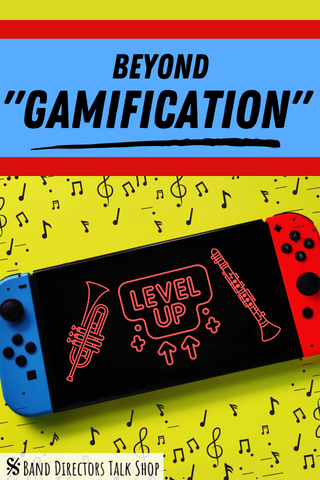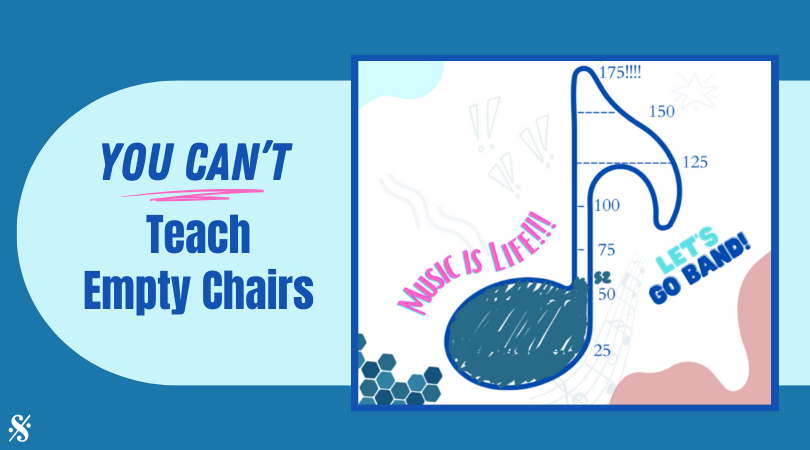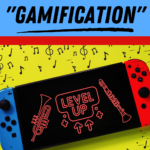Video games are a waste of time for men with nothing else to do. Real brains don’t do that.
~ Ray Bradbury
Video games have been blamed for many things in our modern society, but I offer a radically different view: I think that video games are far from the problem… in fact, they may well offer some answers.
The question isn’t whether or not games can get their hooks into people; that’s obvious. The more interesting question is why and how we can leverage the same devices to our benefit as Directors.
Video games do many things impeccably well, weaving pedagogy, psychology, behavioral economics, and everything else we studied in college: there’s more than enough to fill several articles. I’d like to examine a small portion of what we can borrow and some ways we can utilize it.

Explicit Success and a Constantly Moving Goal Post
One of the most brilliant aspects of how video games work is that they make success explicit, offer a constant stream of rewards, and offer obvious landmarks for growth.
This is deeply seductive because music doesn’t work that way. How much better are you at trumpet after a rehearsal? What’s the next “level” of playing? What do you get for improving? Can I even get better?
Contrast that with a video game like Rocket League. There are:
- Tiered rewards just for playing AT ALL
- Challenges that require modest skill to receive additional rewards
- Rewards for players who play the longest and most
- Ranks awarded for consistent wins at a tier of performance
A student who plays in an ensemble for an hour knows that he needs to practice because “he will get better” and “his/her band director wants them to,” that working on long tones might pay off someday, and they need to be prepared for the playing test because it’s part of their grade.
A student who plays Rocket League for an hour knows they’ll get rewards for every match, that they’re 80% of the way through a challenge (better keep working to block goals this week), that they’re 2 wins away from being in the “Gold III” tier, and that getting four more wins in Gold II will get them a banner that shows their accomplishment to everyone they play.
Do you see the difference?
How Can We Compete?
At first blush, we can’t. Success is more subtle in music, and the checkpoints along the way are hard to qualify. That said, we can borrow some of the strategies video games use to inform success, dangle carrots, and reward students who succeed at a given task. What can this look like in your ensemble?
Reward All Players… but not equally
I’m a huge proponent of “Bonus” assignments, and they’re the bedrock of the approach we use at my school. “Bonus” assignments are the work offered weekly above and beyond mandatory assignments. These are simple, or at least short, assignments designed to net students additional points used to determine their “chairs.”
When we were in school, we always used playing tests to determine the hierarchy: whoever scored the highest sat towards the top of the section. The spirit of competition is right but incentivizes the wrong thing: a single performance. A middling student can have a great day and sit at the top of the section; a great student can have a rough day and bomb. There’s no clear path forward for students, and the message is that “some people have it, some don’t.” “Just practice” is the remedy on offer, and it’s not very helpful or actionable.
With “Bonuses,” the message is always the same: if you complete more assignments, you’ll have a higher chair and cooler part. What do you practice? Why, assignments are carefully structured by you, the band director! Choose whatever suits you: long tones? Lip slurs? Technical exercises? You’re in the driver’s seat of your students’ practice regimen. The message is always “practice more.” Want a better chair? Complete more assignments. Want to KEEP your high chair? Complete more assignments. There is always a REASON to practice and SOMETHING OBVIOUS to practice.
We use Canvas for this, but there’s no reason you couldn’t use anything from SmartMusic to Gmail to live performances during class. Practice is what the military calls a “force multiplier,” and anything we can do to increase it has exponential benefits. On some level, ANY time on the horn is helpful. A steady stream of carefully-chosen assignments with a race to complete them only sweeten the deal.
The Tip of the Spear
Why stop there?
In our 7th Grade program, we divide students into “Houses” (think Harry Potter) and add another dimension with “House Points.” We offer a pizza party and perpetual trophy for the winning House each concert cycle, with each bonus worth xxx Bonus Points and xxx House Points. Now we can weigh each assignment differently to encourage different sorts of priorities for different students!
Furthermore, we can offer different TYPES of assignments for different types of kids, based on Bartle’s “Player Type” theory, encouraging composition, history, improvisation, etc. We offer in-class competitions. We have spirit days and practice sessions (for points). The sky is the limit!
Go even crazier: our 8th Grade offers beanies, cups, and other items with our band logo on them. Free advertising with kids fighting to get theirs first – what could be better?
Does It Work?
I can’t guarantee anything, but I can tell you that we have gone from:
- No means of really monitoring practice to over 70% completion of mandatory work
- Well over 60% of our students doing more than the minimum
- Over 25% of our students do significantly to profoundly more work at home
Only the Beginning
Video games have much to teach us, but the central focus on player agency, differentiation, and rewarding incremental success is a great place to start. Use those as a lens, and your ensemble and students will be transformed forever!
Jared Brockmeyer is the assistant band director at Rockwood South Middle School in the St. Louis area. Jared received his Masters of Music and Education from Truman State University and is a National Board Certified teacher. Recently, Jared has presented on video games and music at the IMEA, MMEA, and NMEA state conferences, and will soon present at IMEC and the Midwest Clinic.
Related Reading:
Jar of DOOOOOM (Changing Up Your Scale Routine)
Teaching Strategies to Evaluate Band Students
Successful Band Pass-Offs
If you would like to receive our weekly newsletter, sign up here.
Don’t forget to like us on Facebook too!
Learn. Share. Inspire.
BandDirectorsTalkShop.com






Leave a Reply
You must be logged in to post a comment.